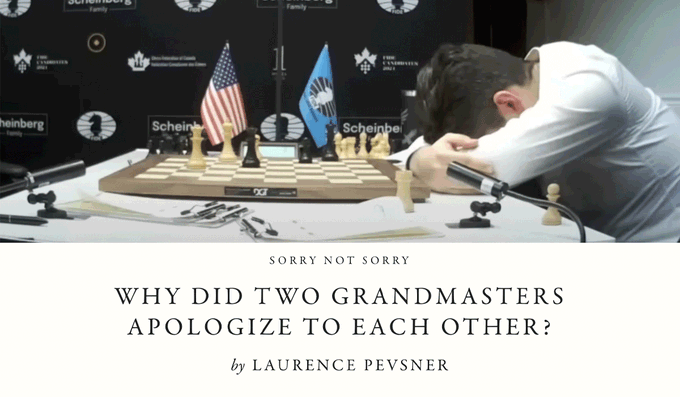Why Did Two Grandmasters Apologize To Each Other?
One beautiful aspect of chess is that it’s a game with perfect information. Unlike in poker, or Settlers of Catan, or most popular board or card games you might play, there is no fog of war. Nothing is hidden except for the plans in your mind.
This can create a purity of exchange. If you play chess in a park or a bar, you might trash talk your opponent. You might use verbal barbs to psyche them out or disrupt their thinking. But you don’t need to think about someone’s tone or look at their body language to see if they’re lying. You can just look at the board. If you analyze correctly, you can’t be tricked.
In professional chess, the purity is made even more pure: you can’t talk to each other until the match is over. You are still having a conversation, of course, but with pawns and bishops and rooks. You might also communicate through the way you hit the clock or a face you make in reaction to a shocking move. But you don’t say a word to each other unless you offer a draw, resign, or win.
That’s part of why I became so fascinated by a small moment in the finale of the most important chess tournament of the year. To me, it showed how even the briefest of apologies can demonstrate a well of empathy.
You can read all about it in what is surely my nerdiest column yet at the link below. I promise I wrote it for anyone to understand, even if you don’t know how the knight moves or suspect en passant is a French insult about peasants. https://www.mcsweeneys.net/articles/why-did-two-grandmasters-apologize-to-each-other

If you’re really feeling nerdy and the particulars of the game intrigue, you can watch an entertaining and enlightening recap of the chess itself at this link: https://youtu.be/jSCwkLwE6yg?t=1007